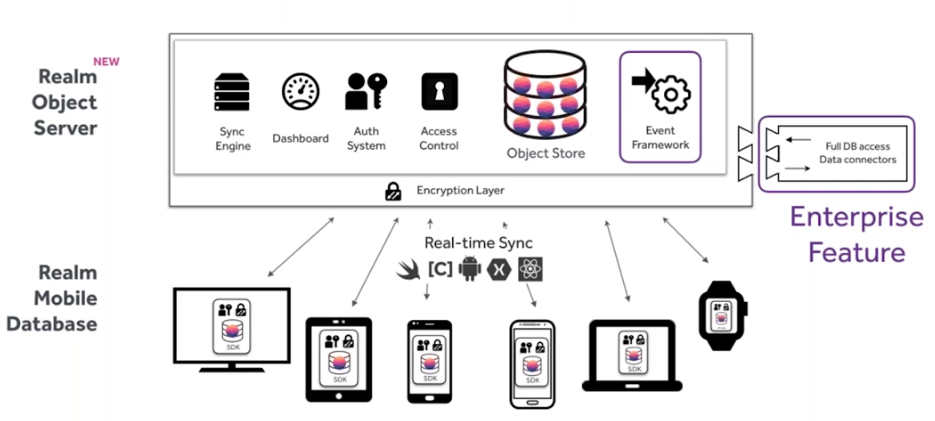| Realm Mobile Reaches 1.0 |
| Written by Alex Denham | |||
| Friday, 03 February 2017 | |||
|
A new platform for mobile developers has been released by Realm, a company best known for its Mobile Database which offers an alternative to SQLite and Core Data. Realm runs directly inside phones and other mobile devices, using native JavaScript objects that are dynamically mapped to a full, custom database engine rather than a key-value store. Realm Mobile Platform 1.0 can be used to develop mobile apps with features like realtime collaboration and live messaging. It combines Realm’s client-side databases for iOS and Android with a new Realm Object Server. Data is automatically synchronized in realtime, and the platform lets you create server-side logic to react to changes in data. The Realm Mobile Platform Developer Edition is free to use. There's also an enterprise edition with extra features, including a data integration API, better scalability, and continuous backup.
The data integration API can be used to integrate the Realm Mobile Platform with any data source, so you can connect realtime apps and app features to existing data and services. The API is designed to understand broken connections and restart interrupted transactions. You can build your own custom connectors, but a pre-built connector for PostgreSQL is included, and the developers are working on others, including Oracle, MongoDB, Hadoop, SAP HANA, and Redis. The scalability in the enterprise version comes in the form of a built-in load balancer that automatically handles distributing connections. This makes it possible to deploy multiple instances of Realm Object Server in parallel, so your app can support more than one million concurrent realtime users. The support for continuous backups means you can create automatic backups of your production Realm Object Server data on a secondary server. Developers can choose where to locate their secondary backup servers, including a different region, for increased disaster recovery resiliency. The new Object Server runs on Linux or macOS, and can be hosted in public clouds including Amazon Web Services (AWS) and Microsoft Azure. More InformationRelated Articles
To be informed about new articles on I Programmer, sign up for our weekly newsletter, subscribe to the RSS feed and follow us on Twitter, Facebook or Linkedin.
Comments
or email your comment to: comments@i-programmer.info |
|||
| Last Updated ( Sunday, 23 September 2018 ) |


